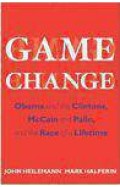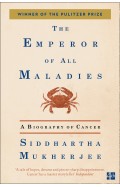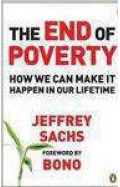- Home
- Books
- Categories
- Non Fiction
- Politics & Current Affairs
- The Border: The Legacy of a Century of Anglo-Irish Politics
The Border: The Legacy of a Century of Anglo-Irish Politics
By: Diarmaid Ferriter
-
Rs 1,296.75
- Rs 1,995.00
- 35%
You save Rs 698.25.
Due to constant currency fluctuation, prices are subject to change with or without notice.
For the past two decades, you could cross the border between Northern Ireland and the Republic half a dozen times without noticing or, indeed, turning off the road you were travelling. It cuts through fields, winds back-and-forth across roads, and wends from Carlingford Lough to Lough Foyle. It is frictionless - a feat sealed by the Good Friday Agreement. Before that, watchtowers loomed over border communities, military checkpoints dotted the roads, and smugglers slipped between jurisdictions. This is a past that most are happy to have left behind but might it also be the future?
The border has been a topic of dispute for over a century, first in Dublin, Belfast and Westminster and, post Brexit referendum, in Brussels. Yet, despite the passions of Nationalists and Unionists in the North, neither found deep wells of support in the countries they identified with politically. British political leaders were often ignorant of the conflict's complexities, rarely visited the border, and privately disliked their erstwhile unionist allies. Southern leaders' anti-partition statements masked relative indifference and unofficial cooperation with British security services.
From the 1920 Government of Ireland Act that created the border, the Treaty and its aftermath, through the Civil Rights Movement, Thatcher, the Troubles and the Good Friday Agreement up to the Brexit negotiations, Ferriter reveals the political, economic, social and cultural consequences of the border in Ireland. With the fate of the border uncertain, The Border is a timely intervention by a renowned historian into one of the most contentious and misunderstood political issues of our time.
For the past two decades, you could cross the border between Northern Ireland and the Republic half a dozen times without noticing or, indeed, turning off the road you were travelling. It cuts through fields, winds back-and-forth across roads, and wends from Carlingford Lough to Lough Foyle. It is frictionless - a feat sealed by the Good Friday Agreement. Before that, watchtowers loomed over border communities, military checkpoints dotted the roads, and smugglers slipped between jurisdictions. This is a past that most are happy to have left behind but might it also be the future?
The border has been a topic of dispute for over a century, first in Dublin, Belfast and Westminster and, post Brexit referendum, in Brussels. Yet, despite the passions of Nationalists and Unionists in the North, neither found deep wells of support in the countries they identified with politically. British political leaders were often ignorant of the conflict's complexities, rarely visited the border, and privately disliked their erstwhile unionist allies. Southern leaders' anti-partition statements masked relative indifference and unofficial cooperation with British security services.
From the 1920 Government of Ireland Act that created the border, the Treaty and its aftermath, through the Civil Rights Movement, Thatcher, the Troubles and the Good Friday Agreement up to the Brexit negotiations, Ferriter reveals the political, economic, social and cultural consequences of the border in Ireland. With the fate of the border uncertain, The Border is a timely intervention by a renowned historian into one of the most contentious and misunderstood political issues of our time.
The Border: The Legacy of a Century of Anglo-Irish Politics
By: Diarmaid Ferriter
Rs 1,296.75 Rs 1,995.00 Ex Tax :Rs 1,296.75
Between Two Hells: The Irish Civil War
By: Diarmaid Ferriter
Rs 897.75 Rs 1,995.00 Ex Tax :Rs 897.75
Zubin Mehta: A Musical Journey (An Authorized Biography)
By: VOID - Bakhtiar K. Dadabhoy
Rs 472.50 Rs 1,050.00 Ex Tax :Rs 472.50
The Populist Explosion: How the Great Recession Transformed American and European Politics
By: John B. Judis
Rs 4,221.75 Rs 6,495.00 Ex Tax :Rs 4,221.75
Myths Illusions and Peace: Finding a New Direction for America in the Middle East
By: Dennis Ross
Rs 985.50 Rs 1,095.00 Ex Tax :Rs 985.50
The Origins of Political Order From Prehuman Times to the French RevolutioN
By: Francis Fukuyama
Rs 3,505.50 Rs 3,895.00 Ex Tax :Rs 3,505.50
Reset: How This Crisis Can Restore Our Values and Renew America
By: Kurt Andersen
Rs 450.00 Rs 500.00 Ex Tax :Rs 450.00
How To Win A Cosmic War God Globalization And The End Of War
By: Reza Aslan
Rs 625.50 Rs 695.00 Ex Tax :Rs 625.50
Game Change Obama And The Clintons McCain And Palin And The Race Of A Lifetime
By: John Heilemann
Rs 715.50 Rs 795.00 Ex Tax :Rs 715.50
Made to Stick: Why Some Ideas Take Hold and Others Come Unstuck
By: Chip Heath & Dan Heath
Rs 2,695.50 Rs 2,995.00 Ex Tax :Rs 2,695.50
The Populist Explosion: How the Great Recession Transformed American and European Politics
By: John B. Judis
Rs 4,221.75 Rs 6,495.00 Ex Tax :Rs 4,221.75
No recently viewed books available at the moment.
Zubin Mehta: A Musical Journey (An Authorized Biography)
By: VOID - Bakhtiar K. Dadabhoy
Rs 472.50 Rs 1,050.00 Ex Tax :Rs 472.50
The Border: The Legacy of a Century of Anglo-Irish Politics
By: Diarmaid Ferriter
Rs 1,296.75 Rs 1,995.00 Ex Tax :Rs 1,296.75
Between Two Hells: The Irish Civil War
By: Diarmaid Ferriter
Rs 897.75 Rs 1,995.00 Ex Tax :Rs 897.75
The Populist Explosion: How the Great Recession Transformed American and European Politics
By: John B. Judis
Rs 4,221.75 Rs 6,495.00 Ex Tax :Rs 4,221.75












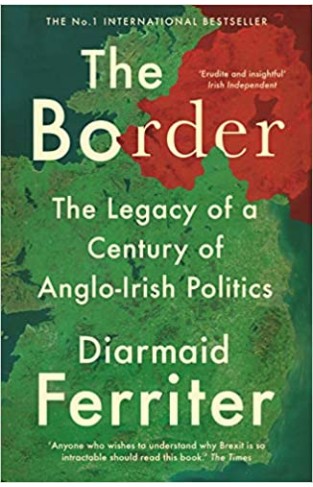
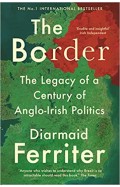
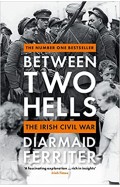
-120x187.jpg?q6)





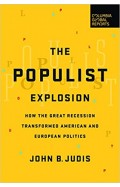


-120x187.jpg?q6)


